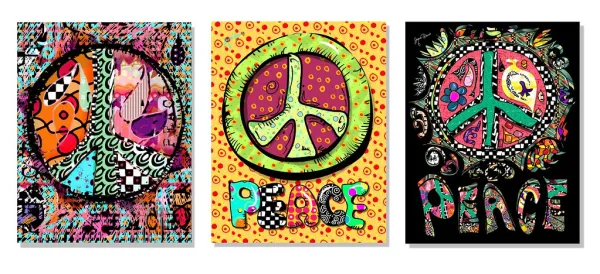“The past carries unforgettable trauma and pain across the land and among generations of refugees; yet we choose to transform victimhood into agency. We want to be the authors of our future.”
Let these words resonate. In a sense, they’re all we have — if we oppose war and envision a future that transcends it. I’ve quoted these words of Ali Abu Awwad before. They’re part of the Palestinian Nonviolence Charter, but they reach beyond Palestine: deep into the soul, and the hope, of all humanity.
Is there a human future that isn’t in the hands solely of global militarism — war — and the “world leaders” who serve it? Are ordinary people no more than spectators in a world in which some 13,000 nuclear weapons remain stockpiled and ready for use, with our collective suicide an ever-present possibility? Can the pursuit of peace —dismissed by so many with a cynical shrug — ever truly challenge the legitimacy of war?
There’s an irony to these questions, because peace means understanding one’s enemy, not destroying him — something far more complex than a “fight or flight” mentality can comprehend. Intensifying the irony is the fact that those who pursue peace at the deepest, most profound levels are oh so often those most victimized by the global racists and warmongers. Whereas waging war — waging murder — seriously minimizes the scope of one’s humanity, enduring its consequences can expand it.
I confess to a deep frustration about all this. While waging peace means embracing the uncertainty of who we are, waging war is psychologically simple and linear: good vs. evil, us vs. them. Organizing a social structure — e.g., “the USA” — around war and militarism is far easier than organizing it around wholeness and understanding. Does that mean we’re stuck with war — at least until we nuke ourselves out of existence?
I don’t know the answer to that question. But I nonetheless celebrate and honor every proponent of peace, as they push beyond their spectator status and do what they can to help author humanity’s future.
Consider, for instance, the Hibakusha . . . the survivors of the atomic bombings of Hiroshima and Nagasaki in 1945 (which killed some 200,000 people), as well as survivors in later years of the fallout and hellish effects of nuclear testing around the world.
And yes, 79 years later, some survivors of the Little Boy and Fat Man atomic bombs are still with us. Many of them have devoted their lives to telling the world about the realities they endured in those bombings. And last week, the organization Nihon Hidankyo, to which many Hibakusha belong, received the Nobel Peace Prize. It’s been a long time coming!
Nihon Hidankyo was founded in1956, essentially in defiance of Japan’s U.S. occupiers, which, according to the organization’s website, “strictly prohibited the people to write or speak about the bombing and damages, including the miserable deaths of 200,000 people, from the Japanese government even after the country regained its sovereignty in 1952.”
They knew the world needed to know what they had endured. The world still needs to know. Yes, seven years ago, the United Nations (by a vote of 122-1) created the Treaty on the Prohibition ofNuclear Weapons, declaring nuclear weapons to be . . . uh, illegal. But the vote was boycotted by the world’s nine nuclear-armed nations, along with all of NATO — and, in any case, the treaty only applies to the countries that have signed and ratified it: 73 countries as of today.
So something is happening here. Post-nuclear peace — or simply peace itself — may still be confined to the social margins, but peace proponents, especially those who have transformed their own victimhood into agency, continue pushing against the norm.
“For over half a century since its founding,” the site informs us, “Nihon Hidankyo has sent Hibakusha delegations to many parts of the world in order to give testimonies on the atrocious damage and human sufferings caused by the use of nuclear weapons, and endeavored to ensure no more Hibakusha would be created anywhere in the world, calling for creating a ‘nuclear weapon-free world.’”
This is not an abstraction, even though the perpetrators of war do their best to make it so. For instance, some months ago, as the Israeli assault on Gaza was getting underway, Israeli cabinet minister Amichai Eliyahu suggested during an interview that using a nuclear weapon on Gaza was a distinct possibility.
In response, 85-year-old Toshiko Tanaka, who lived in Hiroshima and was 6 years old when her city was nuked, said in outrage that Eliyahu “doesn’t realize how terrible the use of nuclear weapons is. . . .
“I hope,” she added, “that the leaders of each nation will not put their own national interests first, but look at the world as a whole and determine a path toward peace.”
If only she could be heard — across the infinite divide separating those in power, especially members of the so-called “nuclear club,” from ordinary humans! “The world as a whole” is where we all live. It’s one entity. If we don’t learn how to live as one, we’ll die as one.
Robert Koehler is an award-winning, Chicago-based journalist and nationally syndicated writer. His newly released album of recorded poetry and art work, Soul Fragments, is available here: https://linktr.ee/bobkoehler
© 2024 TRIBUNE CONTENT AGENCY, INC.



